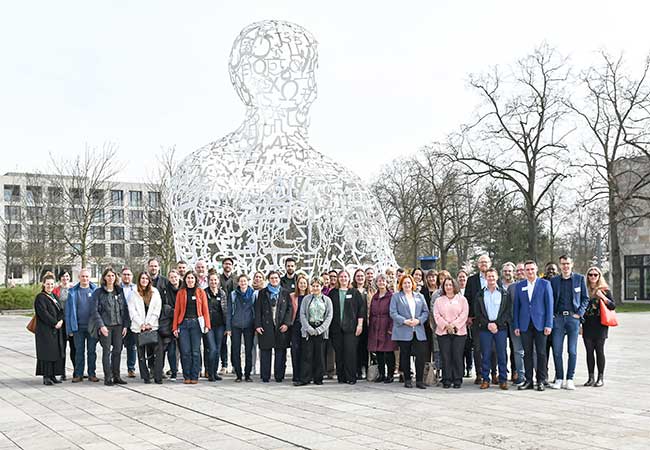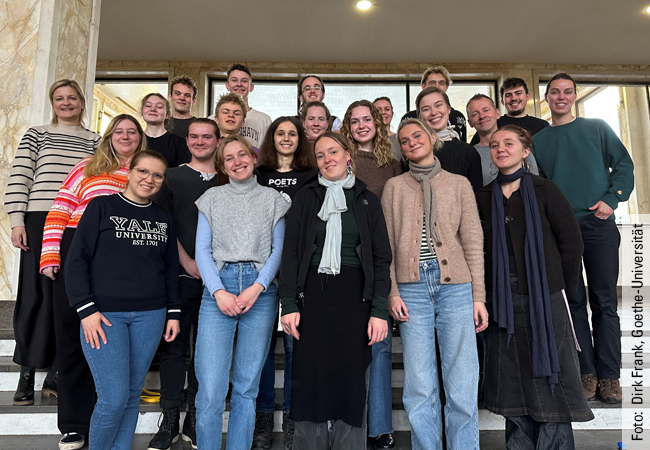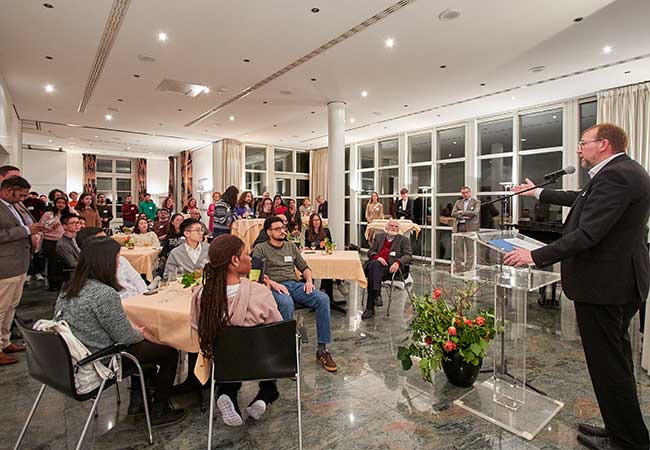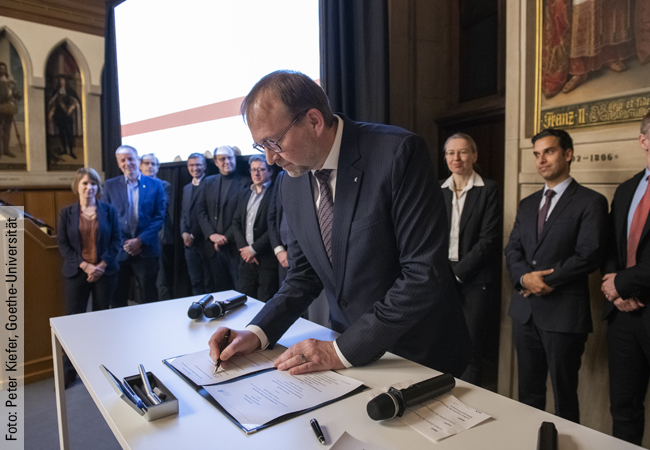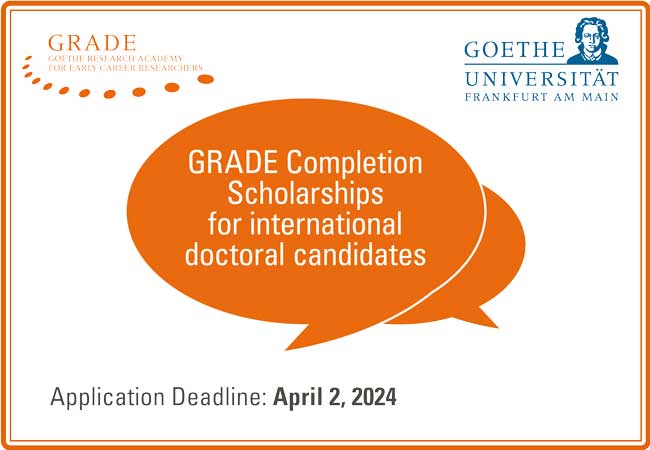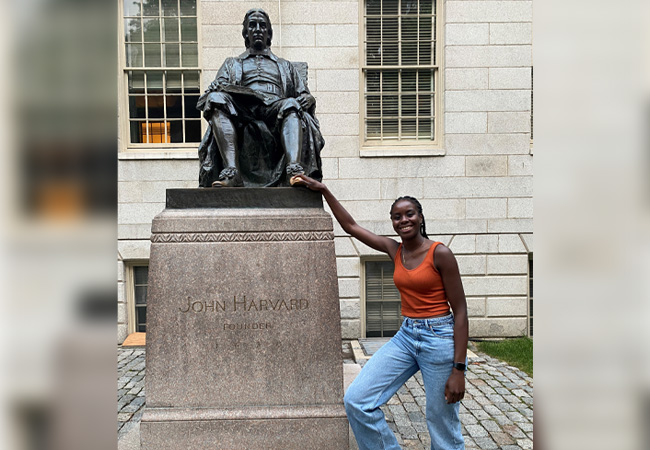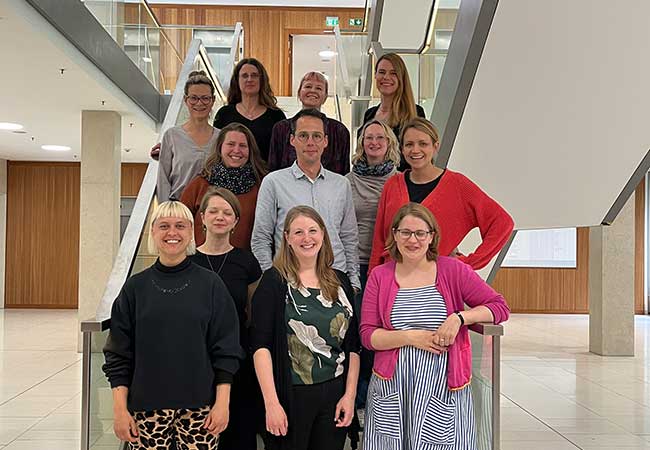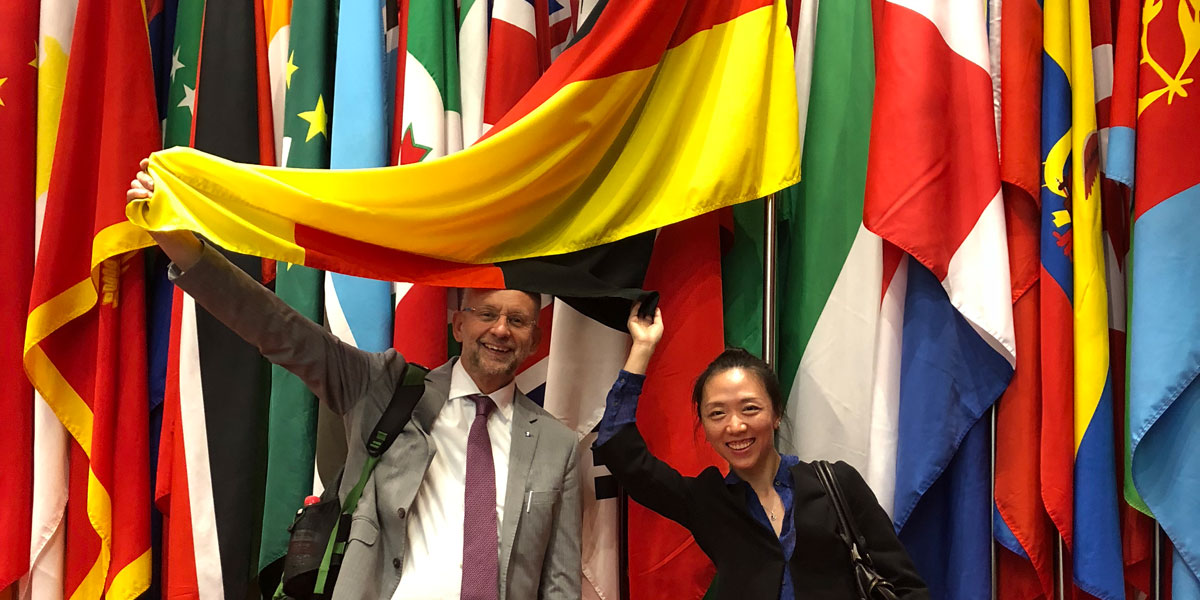 Ultimately, a video conference is no substitute for meeting in person: For a Vice President of Internationalisation, visiting current or future partner universities is basically part of the job description. Professor Rolf van Dick, who is responsible for internationalisation, as well as early career scientists, equal opportunities and diversity in the Executive Board, visited China and Georgia in September. He reports on the opportunities for Goethe University students and scientists he sees in these countries, as well as sharing his personal impressions.
Ultimately, a video conference is no substitute for meeting in person: For a Vice President of Internationalisation, visiting current or future partner universities is basically part of the job description. Professor Rolf van Dick, who is responsible for internationalisation, as well as early career scientists, equal opportunities and diversity in the Executive Board, visited China and Georgia in September. He reports on the opportunities for Goethe University students and scientists he sees in these countries, as well as sharing his personal impressions.
China
How closely should we collaborate with China? The question isn’t a simple one to answer. Chinese politics seems to have become more controlling in recent years, so that we need to keep an eye on which institutions we choose for our student exchanges. At the same time, however, we shouldn’t abandon our partners when things get more difficult politically for them. The goal is to be aware of who we cooperate with, and how.
We have been connected with Fudan University in Shanghai for a long time and after several years without a visit, it was time to travel to our partner university. When it comes to China, it’s particularly important to maintain personal contact. Vice Presidents of Internationalisation are generally accompanied on their travels by representatives from the International Office. During this visit, however, I was accompanied by Professor Zhiyi Yang from the Faculty of Linguistics, Culture and Arts, who not only represented the view of Sinology in Frankfurt, but also provided coaching assistance in intercultural communication – for example, when it was necessary to know when a “yes” really meant “yes”, or when it was closer to a “maybe”. I had many different meetings at Fudan University, including one with the Vice President for Internationalisation, and I also gave a lecture in the Psychology Department. We toured the Center for the Studies of Chinese Civilization which Ms. Yang herself had visited as Fellow, and which could offer colleagues from Goethe University opportunities as visiting researchers in the future. The Hessian Ministry of Economics also arranged a visit with the Shanghai Academy for Social Sciences.
Our visit to the Yenching Academy, which belongs to University Peking, was particularly interesting to me. The Academy is cosmopolitan, not subject to rigid state controls, and has many internationally renowned guest lecturers. They offer a two-year master’s programme for approximately 120 students, and bachelor graduates from anywhere in the world may apply. The first year of study takes place in Peking and is completely funded – including travel costs, housing and an allowance. While learning Chinese is desired, a wide range of English courses are also offered. In the second year of study, the students return to their home countries to write their master’s thesis. I think this is a fantastic opportunity – if I were young, I would apply immediately!
Peking University is indisputably the best university in China. We haven’t been able to establish a partnership so far, but during our meeting with the Vice President, we considered how we might be able to take the first small step toward student exchanges – something we will definitely follow up on.
Together with Fudan University, we operate the Confucius Institute at Goethe University, which teaches about Chinese culture and offers language classes. The budget for the Institute has not been satisfactory in recent years, so that a visit to the Confucius “umbrella” organisation, Hanban, was a very important stop on my trip. Our talks were positive and constructive; Hanban was very willing to accommodate our requests. On a side note: while we were visiting Hanban, an Open House with students from all over the world was underway, and for once we were able to access Facebook…normally Western Social Media and search engines are blocked in China, but on this occasion the Chinese government apparently desired to present itself as more open.
Business dinners in China are always great fun. Typically, everyone sits at a large round table that is rotated so that everyone can share the dishes. It’s very communicative and the food is usually excellent. During this visit I was surprised that what I took for a vegetable turned out to be a jellyfish – but in general I am happy to try new things.
Georgia
The food in Georgia, which was my next destination after a brief stopover in Frankfurt, is excellent as well. The meat dishes reminded me of Greek cuisine, but there were also many lovely dishes with walnuts.
The occasion for my visit to Georgia was the 100th anniversary of Tbilisi State University, which has been a long-time partner, especially for our linguists. On the event of the anniversary, an innovation forum was held, and on the last day there was a discussion round on the subject of Europe, in which I was able to participate as honorary guest. At every meeting, potential areas for cooperation are discussed, and the various benefits are detailed. Overall, Georgia is a country I highly recommend for student exchanges. Everyone who knows me knows I take my running shoes with me on all of my business trips and in Tiflis I also went for a run first thing in the morning. The city is interesting with a mix of historical and ultra-modern buildings. Georgia is not rich, but safe, and worth exploring – not the least because of its beautiful scenery.
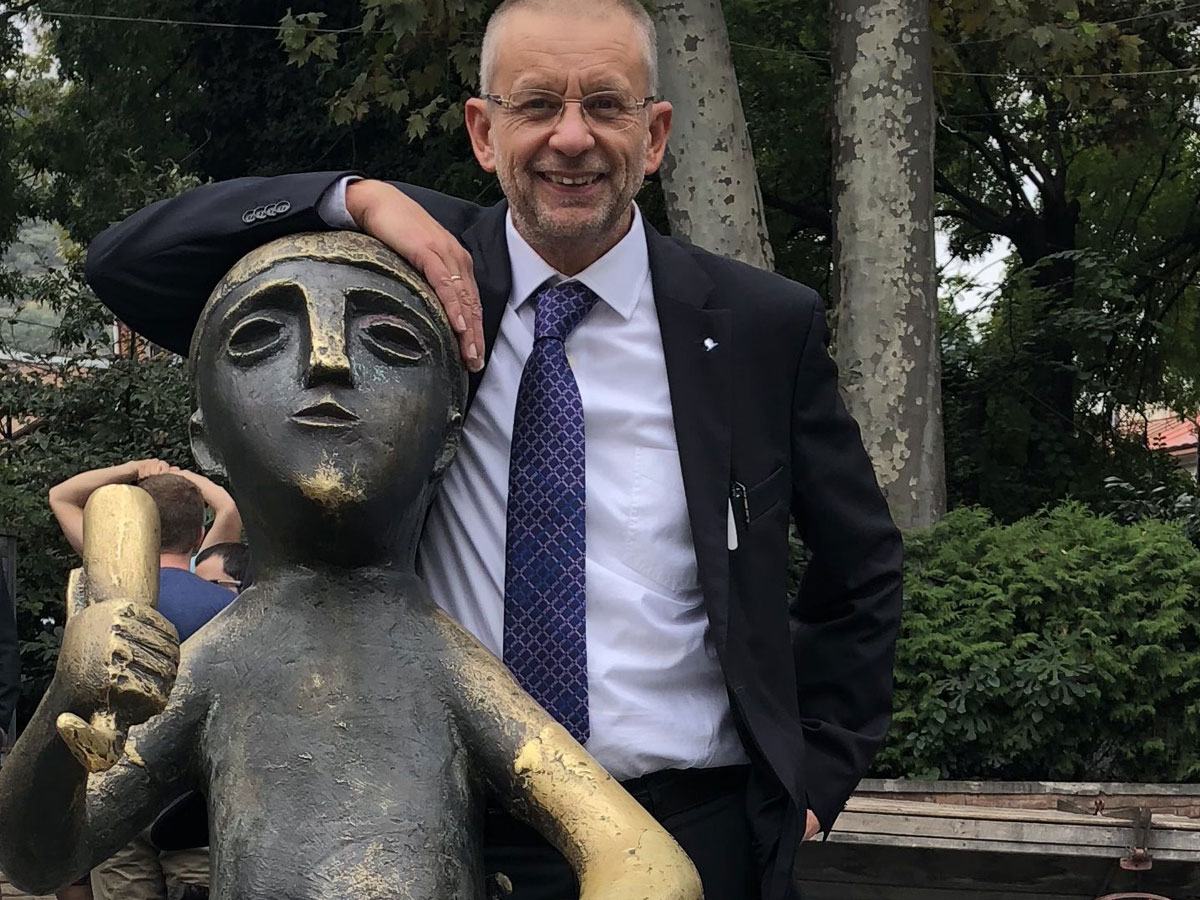 Incidentally, the toast master plays an important role in Georgia’s daily culture. The rector of Tbilisi State University invited us to a good restaurant one evening, and he interrupted the meals five or six times to make a toast – always accompanied by a short anecdote. We toasted science, the women at our table, success…Winegrowing has a long tradition in Georgia, and the rector also owns a vineyard. When we returned to Frankfurt, a delegation from Tbilisi State University came to visit to sign a Memorandum of Understanding for an even stronger cooperation in the future. In the evening, we went to the Restaurant Old Tiflis, and there, again the toasting tradition was observed: since Georgia’s Minister President was not able to come due to a delayed flight, the representative from the Hessen State Parliament was obliged to take over the role of toast master, and to spontaneously give a toast for each course of the meal. In this spirit: to science!
Incidentally, the toast master plays an important role in Georgia’s daily culture. The rector of Tbilisi State University invited us to a good restaurant one evening, and he interrupted the meals five or six times to make a toast – always accompanied by a short anecdote. We toasted science, the women at our table, success…Winegrowing has a long tradition in Georgia, and the rector also owns a vineyard. When we returned to Frankfurt, a delegation from Tbilisi State University came to visit to sign a Memorandum of Understanding for an even stronger cooperation in the future. In the evening, we went to the Restaurant Old Tiflis, and there, again the toasting tradition was observed: since Georgia’s Minister President was not able to come due to a delayed flight, the representative from the Hessen State Parliament was obliged to take over the role of toast master, and to spontaneously give a toast for each course of the meal. In this spirit: to science!


